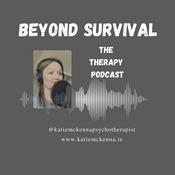349 episodes
- In this episode of the Pain Science Podcast, Dr. Mary Beth Osborne discusses the integration of mental health into physical therapy practice. She shares her personal experiences with suicide in her family, which have shaped her commitment to addressing mental health issues in her work. The conversation explores the importance of screening for mental health conditions, the role of physical therapists in providing holistic care, and the evolution of the PT Cares clinic at the University of Connecticut. Dr. Osborne emphasizes the need for physical therapists to be proactive in addressing mental health and the barriers that currently exist in the healthcare system.
Visit integrativepainscienceinstitute.com for CEU training on psychologically-informed pain care for physical therapists and other practitioners.
Thank you for listening,
Joe Tatta, PT, DPT
CEO, Integrative Pain Science Institute - In this episode, Dr. Joe Tatta discusses the recent policy changes by the American Physical Therapy Association regarding the role of physical therapists in behavioral and mental health. He emphasizes the importance of this policy in legitimizing the role of physical therapists in addressing mental health issues, moving from mere acknowledgment to active inclusion in practice. The discussion covers the historical context of these policies, the implications for physical therapy education and practice, and the ethical responsibilities that come with this expanded scope. Dr. Tatta highlights the need for competence and the importance of viewing physical therapists as whole health clinicians capable of integrating mental health into their practice.
Visit integrativepainscienceinstitute.com for CEU training on integrative, psychologically-informed pain care for physical therapists and other practitioners.
Thank you for listening,
Joe Tatta, PT, DPT
CEO, Integrative Pain Science Institute Nutrition, Rheumatoid Arthritis, and the New Food Pyramid with Sara Brown, PT, DPT, MS
19/1/2026 | 58 mins.In this episode of the Pain Science Podcast, Joe Tatta, PT, DPT, welcomes Sarah Brown, PT, DPT, MS a doctor of physical therapy and nutritionist, to discuss the intricate relationship between food, the immune system, and chronic joint pain, particularly focusing on rheumatoid arthritis (RA). Dr. Brown shares her unique journey from physical therapy to nutrition, emphasizing the importance of combining movement and dietary changes to manage chronic pain effectively. They delve into the impact of diet on inflammation and pain, highlighting the significance of the Mediterranean diet and the potential benefits of an elimination diet for those suffering from RA.
The conversation also explores the pathophysiology of rheumatoid arthritis, including genetic and environmental triggers, and the role of gut health in managing inflammation. Dr. Brown explains how lifestyle factors such as diet, stress, and sleep can influence the immune response and overall health. The episode concludes with practical advice on dietary changes, the importance of understanding food's role in health, and the potential of supplements like omega-3 fatty acids, curcumin, and resveratrol in alleviating symptoms of RA. This insightful discussion aims to empower listeners with knowledge and practical strategies to improve their health through nutrition and lifestyle adjustments.
Visit integrativepainscienceinstitute.com for CEU training on integrative, psychologically-informed pain care for physical therapists and other practitioners.
Thank you for listening,
Joe Tatta, PT, DPT
CEO, Integrative Pain Science Institute- In this episode of the Pain Science Podcast, Joe Tatta, PT, DPT, interviews Sharna Prasad, PT, DPT, about her journey from India to the U.S. and her experiences in pain management. They discuss the cultural influences on pain perception, the importance of understanding social determinants of health, and the need for a shift in physical therapy education. Dr. Prasad shares her insights on community empowerment, the development of pain education curricula, and the challenges faced in implementing new pain care models.
Visit integrativepainscienceinstitute.com for CEU training on integrative, psychologically-informed pain care for physical therapists and other practitioners.
Thank you for listening,
Joe Tatta, PT, DPT
CEO, Integrative Pain Science Institute - In this episode, Joe Tatta, PT, DPT, speaks with Sarah Conover, PT, MHS, CHC, a vestibular therapist with a background in treating conditions related to anxiety, dizziness, and pain. Sarah shared her journey, starting from her early career in the late 1980s, working in acute neuro care, to her current practice, which focuses on chronic vestibular issues. She highlighted the evolution of vestibular therapy and the increasing recognition of conditions like vestibular migraine, 3PD (persistent postural perceptual dizziness), and Mal de Débarquement syndrome.
We delved into the intricate connections between the vestibular system and mental health, discussing how dizziness can trigger anxiety and other autonomic responses due to the close interplay between the vestibular system, the autonomic nervous system, and brain structures like the amygdala and hypothalamus. Sarah emphasized the importance of a holistic approach in treatment, incorporating mindfulness and acceptance-based strategies to help patients manage their symptoms.
Sarah also shared her personal journey with anxiety and how it has influenced her practice. She employs a range of tools, including mindfulness practices, thought reframing, and expressive writing, to assist her patients in developing a sense of safety and acceptance regarding their symptoms. We also touched on the role of spirituality in healing, with Sarah explaining how she gently explores this aspect with her patients to support their overall well-being.
To learn more about Sarah's work, visit her at dizzycoach.com
Visit integrativepainscienceinstitute.com for more information and CEU courses on pain and mental health for physical therapists.
Thank you for listening,
Joe Tatta, PT, DPT
CEO, Integrative Pain Science Institute
More Health & Wellness podcasts
Trending Health & Wellness podcasts
About Pain Science Podcast
The Pain Science podcast discusses science-backed solutions for chronic pain. Learn how to use the brain, body, mind, and behavior for pain relief and improve both physical and mental well-being. Hosted by Dr. Joe Tatta, a physical therapist and CEO of the Integrative Pain Science Institute, the podcast features a wide range of topics, including pain neuroscience, physical therapy, psychology, exercise, health, and wellness.
Work from the Integrative Pain Science Institute has been published in top journals, including Physical Therapy and Rehabilitation Journal and the Journal of Physiotherapy in Mental Health. Dr. Joe Tatta is widely recognized for his contributions to pain science and mental health physical therapy. He developed PRISM—Pain Recovery and Integrative Systems Model, a process-based cognitive-behavioral approach for physical therapy; Pain Resilience Therapy, a strengths-based approach to treating chronic pain; and the Mental Health Physical Therapist Certification Program.
Join The Pain Science podcast to discover ways to reduce pain and expand your professional toolkit. Learn more at: https://integrativepainscienceinstitute.com/
Podcast websiteListen to Pain Science Podcast, Feel Better, Live More with Dr Rangan Chatterjee and many other podcasts from around the world with the radio.net app

Get the free radio.net app
- Stations and podcasts to bookmark
- Stream via Wi-Fi or Bluetooth
- Supports Carplay & Android Auto
- Many other app features
Get the free radio.net app
- Stations and podcasts to bookmark
- Stream via Wi-Fi or Bluetooth
- Supports Carplay & Android Auto
- Many other app features


Pain Science Podcast
Scan code,
download the app,
start listening.
download the app,
start listening.






































